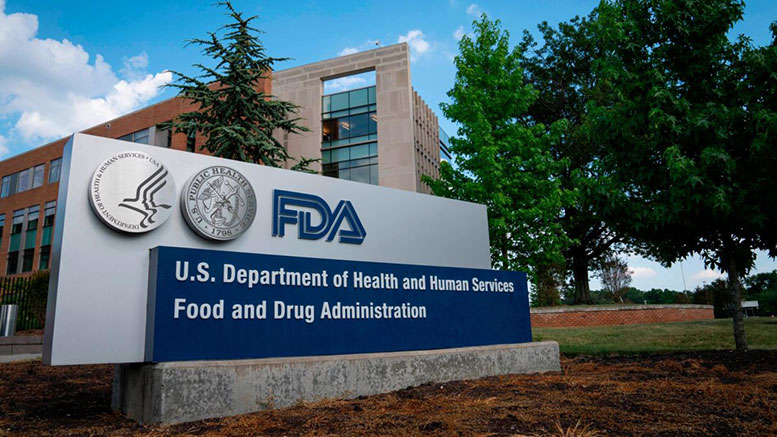CBD stakeholders say they hope the appointment of a cannabis policy expert at the U.S. Food & Drug Administration (FDA) signals the agency may finally begin to establish a regulatory program.
FDA has hired Norman Birenbaum, a former cannabis official in two states, to the position of senior public health advisor in its Center for Regulatory Programs.
“After four years of inaction, we are hopeful that the appointment of Norman Birenbaum by the FDA signals a positive step forward for the regulation of hemp-derived cannabinoids such as CBD,” said Jonathan Miller, General Counsel at the U.S. Hemp Roundtable (USHR).
‘Positive step’
Miller said USHR will be “working closely with (Birenbaum) on the development of a regulatory framework for CBD products to ensure consumer safety and product quality across the country.”
Birenbaum was previously director of cannabis programs for New York, where he supervised regulation and policy development for the state in a post he held from 2019 until this year. Before that, Birenbaum developed medical cannabis and hemp programs and created the Rhode Island Office of Cannabis Regulation while serving as that state’s cannabis czar from 2016 to 2019.
“With his expertise in policy analysis and legislative outreach related to cannabis and cannabis-derived products, Norman is excited about creating the high-value partnerships needed for FDA’s outreach throughout the health care community, including with patients and patient advocacy groups,” Douglas Throckmorton, deputy director for regulatory programs at FDA’s Center for Drug Evaluation and Research, said in an email to FDA staff.
Authority over CBD
FDA asserted its authority to regulate products derived from cannabis, including hemp, after passage of the U.S. Farm Bill of 2018 legalized hemp federally. The agency is therefore playing a major role in the development of markets for hemp-derived food, cosmetics and drugs in the United States.
CBD for direct human consumption, which has yet to receive serious consideration from the FDA, exists in a legal gray area in many parts of the country, and product quality and safety remain serious questions.
Hemp-derived CBD comes under the Food, Drug and Cosmetics Act (FD&C Act) which, through the FDA, authorizes products after testing them – a notoriously slow, if thorough, process.
Feet dragging at FDA
While CBD has drawn the attention of the FDA, the agency has done little to advance regulations but instead has spent most of its efforts cracking down on spurious advertising claims and issuing warnings to producers.
The FDA has already acknowledged the benefits of CBD use for seizure disorders with the approval of Epidiolex, a prescription drug that has helped patients who suffer Dravet Syndrome and Lennox-Gastaut Syndrome, two debilitating forms of epilepsy. The product, which contains high levels of CBD (100 milligrams per milliliter), was the first such drug to gain FDA approval.
But despite being a “science-led” organization, the FDA has done little in support of the research necessary to ensure over-the-counter CBD products are safe and establish regulations for producers.
Lawmakers push agency
FDA meanwhile continues to face pressure from Capitol Hill over a desperately needed regulatory framework for hemp-derived CBD, with lawmakers repeatedly asking the agency for specifics on the research needed as a foundation for a regulatory framework.
“The FDA’s regulatory approach to CBD has created unnecessary uncertainty in the marketplace around these products,” Republican congressmen Morgan Griffith of Virginia and Brett Guthrie of Kentucky recently wrote in a seven-page letter to FDA Commissioner Robert Califf.
“The United States currently has a robust but largely unregulated CBD market, which leads to an unsafe marketplace for consumers,” the lawmakers said.
“In areas from baby formula to CBD products to tobacco, the FDA has been sluggish in solving problems, it has been unresponsive to Congress, and it has been deficient in the execution of responsibilities given to it by law,” the letter continued.
Two measures on table
In an earlier letter sent to Califf in August, Griffith and other lawmakers criticized FDA for the poor technical assistance it provided in response to the proposed CBD Product Safety and Standardization Act, saying the agency’s input was little more than a rehash of previous information. That bill is focused on the regulation of CBD as a food.
Meanwhile, a separate bill that deals with CBD in dietary supplements, the Hemp and Hemp-Derived CBD Consumer Protection and Market Stabilization Act of 2021, has more than 40 co-sponsors, indicating lawmakers are widely in support of clearing up the CBD gray market.
Commissioner Califf admitted earlier this year that the FDA was lacking in-house expertise on CBD. “I don’t think the current authorities we have on the food side, the drug side, necessarily give us what we need to have to get the right pathways forward,” the FDA commissioner said. “We’re going to have to come up with something new. I’m very committed to do that.”
Read the full article here

